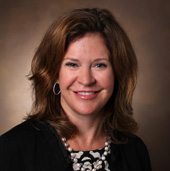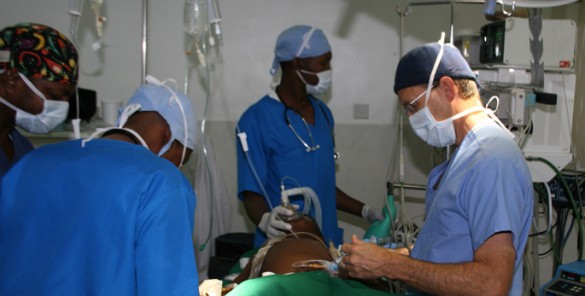An estimated 5 billion people — two-thirds of the world’s population — do not have access to surgery because of a lack of facilities, money and trained surgeons and anesthesiologists.
For years, surgeons and anesthesiologists from Vanderbilt University Medical Center have quietly responded to this challenge by providing services and training in resource-poor countries, and by providing on-site residency rotations and fellowships in global surgery and anesthesia training to the next generation of Vanderbilt physicians.
Now they have joined an international effort to raise awareness about the continuing, desperate need for surgery and anesthesia services around the globe, and to sound a call to action for wealthier countries to do more to help.
John Tarpley, M.D., a leader in the global surgery movement at Vanderbilt, is co-author of a new report that provides a “roadmap for high-income country actors” to help expand access to surgical care around the world. The report was published Thursday in a new journal, BMJ Global Health.
On April 9, a Global Surgery Retreat will be held on campus to discuss ways of improving the coordination, impact and influence of the diverse global surgery and anesthesia programs that are already underway at Vanderbilt.
One report estimated that 19 women out of 20 in rural areas of sub-Saharan Africa who need emergency C-sections don’t get them. “How do we go to sleep at night, knowing that’s happening?” Tarpley asked.
Tarpley and his wife, Margaret Tarpley, senior associate in Surgery, have provided surgery services in Africa since 1978. They are among 60 Vanderbilt surgeons, anesthesiologists and other health professionals who currently provide services and training in countries around the globe.
Saturday’s retreat was organized by Kelly McQueen, M.D., MPH, director of Vanderbilt Anesthesia Global Health and Development and a global leader advocating for the presence and safety of anesthesia. She said attendees will discuss the possible formation of a Vanderbilt Global Surgery Initiative to coordinate and expand existing efforts.
“Vanderbilt is already leading the charge for access to basic surgery and safe anesthesia,” said McQueen, who has been involved for 20 years in efforts to improve anesthesia services in resource-poor countries.
“We hope that bringing these committed individuals together in the interest of collaboration and improved data collection will allow Vanderbilt to have a larger voice within the circles of global surgery,” she said.
The United States and other “high-income” countries can only gain from increasing their investment in surgery and anesthesia services and training in poorer parts of the world, Tarpley said.
“There are economic reasons: Those are markets for us if their people are healthy,” he said. “There are security reasons: Troubles elsewhere have a way of finding their way here. And there are humanitarian reasons: It’s the right thing to do.”















